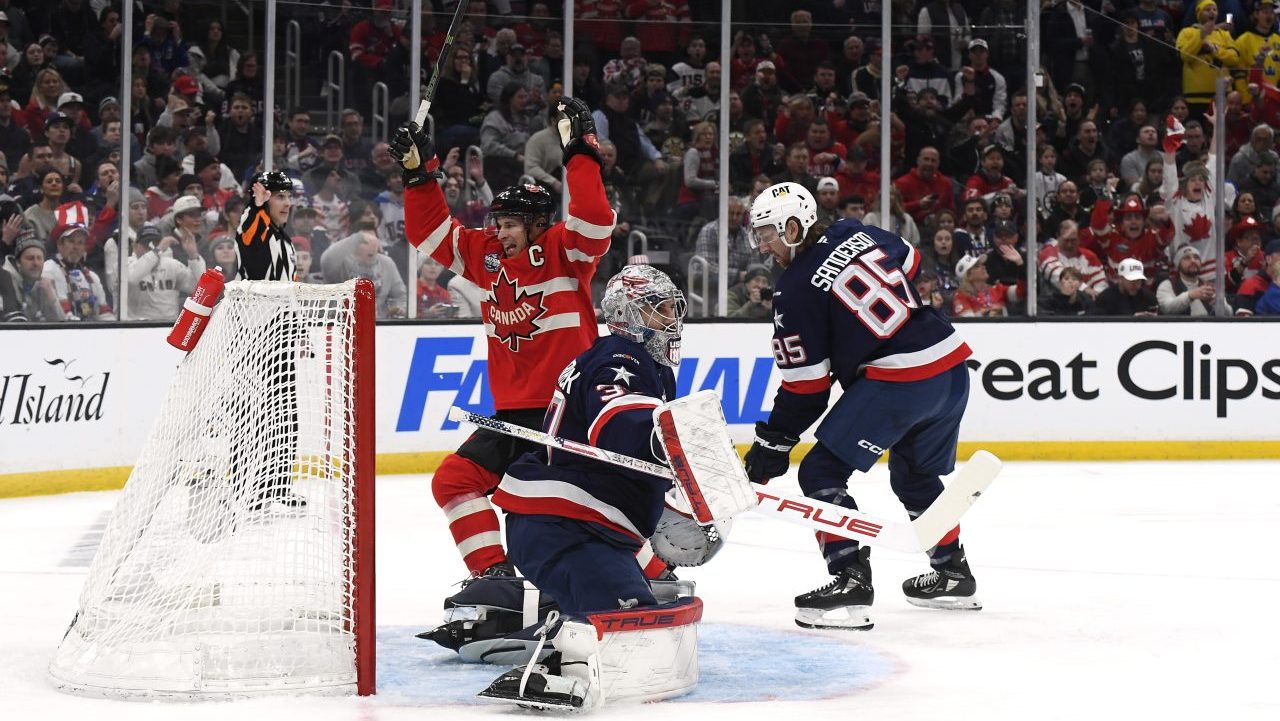

Canada’s 3-2 win over Team USA in the finals of the 4 Nations Face-Off wrapped up a mini renaissance for the NHL, a 10-day stretch of big ratings, fan excitement and nearly unanimous praise for a league eager to penetrate further into the U.S. sports zeitgeist.
Connor McDavid’s goal 8:18 into overtime Thursday night in Boston capped a round robin tournament that was the first of its kind—and likely also the last of its kind. NHL players haven’t meaningfully participated in an international event in almost 10 years, and the 4 Nations Face-Off was merely a way for the league and its union to ease back into that structure.
Next year, NHL players will return to the Winter Olympics for the first time since 2014. In 2028, the NHL- and NHLPA-owned World Cup of Hockey will return for the first time since 2016. In the off years, we’re more likely to see the traditional All-Star break than we are to see another four-nation round robin.
“We have the most internationally diverse player pool of any major [U.S.] sport, and our players from an early age have represented their countries and take great pride in representing their countries,” NHL commissioner Gary Bettman explained on Fox’s Breakfast Ball this week. “So we’ve made arrangements to go back to the Olympics, and then we agreed that two years after that we’ll do a full World Cup, not just four teams. Then after that, back to the Olympics and then World Cup, and so on. So every two years at least we’ll have an international competition.”
A spokeswoman for the NHL confirmed there are currently no plans to host a 4 Nations Face-Off in 2027 or 2029.
The 4 Nations Face-Off benefited from a perfect sports storm. For one, hockey fans have been starved of any “best-on-best” international tournament for nearly a decade. It’s been a frequent gripe for fans of the game, and a years-long negotiation between players who also want to play in Olympics/World Cups and NHL owners more wary about the risks associated with their participation. To put the drought into perspective, 29-year-old forward Nathan MacKinnon, widely considered on of the best players in the world, hadn’t played a game of consequence for Team Canada’s senior squad prior to this tournament.
Geopolitical strife was layered on top of that pent-up desire. New U.S. President Donald Trump has taken an aggressive stance toward Canada, threatening 25% import tariffs and speaking openly about his desire to make Canada the “51st state.” While that rhetoric has been met with a mix of support or eye-rolling in the U.S., in Canada it has spurred a national reckoning. Prime Minister Justin Trudeau, who is stepping down in the coming month, said on X that there “isn’t a snowball’s chance in hell that Canada would become part of the United States.”
When the U.S. and Canada played their round robin game in Montreal on Saturday night, the PA announcer asked fans to be respectful during the national anthems. Thousands of fans booed the Star-Spangled Banner anyway. The game then started with three fights in the opening 10 seconds.

The NHL pales in comparison to the size and popularity of the NBA in the U.S.—the average NHL team is worth $1.8 billion, per Sportico’s numbers, as opposed to $4.6 billion in the NBA—but the 4 Nations Face-Off taking place directly opposite the NBA’s struggling All-Star product produced a rare win for the hockey league over its winter sports rival.
Prior to the tournament, some wondered openly if players would take the event seriously, or play with a reduced intensity common to NHL All-Star Games and other exhibitions. Those concerns were allayed almost immediately. American forward Brady Tkachuk said the games against Canada were the biggest games he’d ever played in; Canadian forward Brad Marchand said U.S. vs. Canada was the sport’s highest-profile rivalry, topping anything in the NHL.
“People are saying that this game is bigger than the Stanley Cup game last year and any Stanley Cup game that we’re going to see this year,” ESPN analyst P.K. Subban, who won a gold medal with Canada at the 2014 Winter Olympics, said Thursday before the game.
Co-organized by the NHL and NHLPA, the 4 Nations Face-Off is a 50-50 joint venture between the two groups. Media partners in both the U.S. and Canada struck new deals to carry the event, and smaller packages were sold in a number of European markets. More than two dozen sponsors joined for the event—some existing NHL partners, others new to the league—and ticket sales improved over the course of the week, with five of the seven games selling out.
Neither the NHL nor the NHLPA has released any revenue numbers for the event. It’s almost certainly smaller than what the World Cup would bring—that event has twice as many games—but also significantly higher than what a normal All-Star Weekend would garner.
See you all in Milan next year.
(This story has been updated in the second paragraph to correct the day of the week McDavid scored.)
